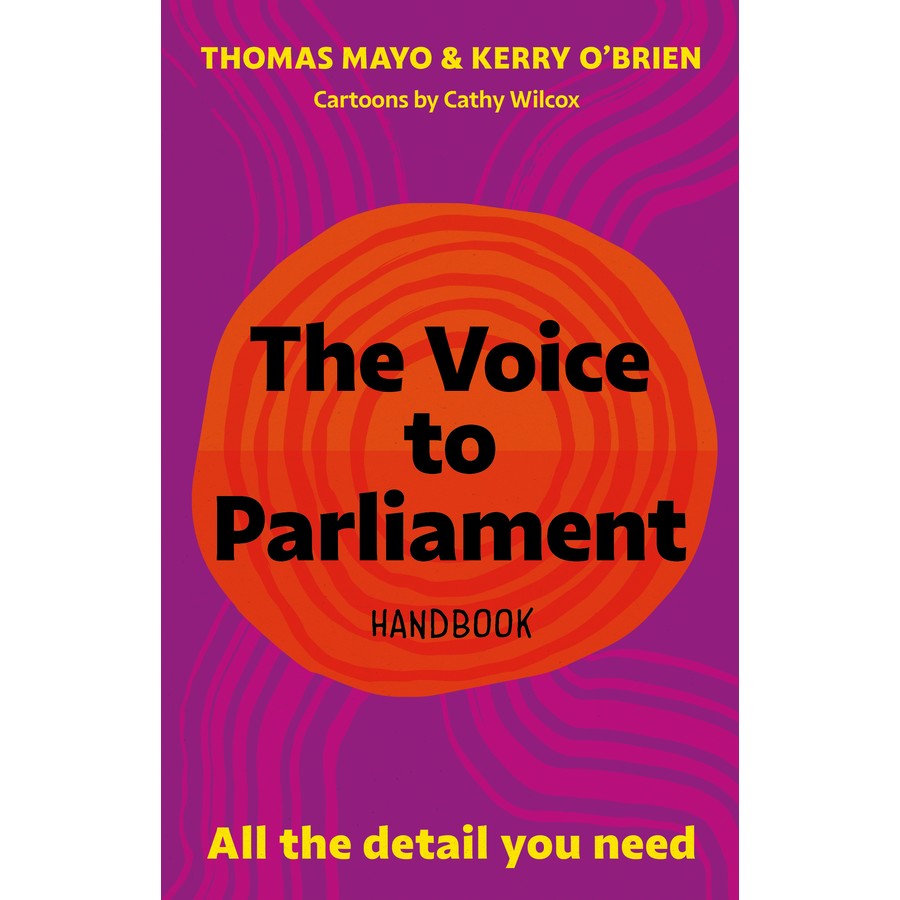[W]e confidently believe that, by raising the quality of our public debate, the proposed Voice will both enrich our democracy and increase the likelihood of governments making correct decisions about matters that affect Indigenous peoples.
It will also, and very importantly, give Indigenous Australians their due recognition in our Constitution as this nation’s first peoples.
Update 24 June 2023: Thomas Mayo writes in The Saturday Paper:
When the British colonies arrived and quickly expanded, Indigenous Australians fought in defence of our families and our country, as you would have. Less practised at war, not conquerors of each other’s lands, we could not stop the frontal assault of colonisation. Yet we have survived.
***
This is a great little book (only 112 pages) on a nationally important subject, what Professor Megan Davis has described as ‘the unfinished business of this nation’. Thomas Mayo, tireless proselytiser (four books) and prophet of the Uluru Statement, is joined by Kerry O’Brien, retired but still feisty ABC journalist, to explain in plain prose the whys, wherefores and where-nexts of the Voice.
Cathy Wilcox did the cartoons and Jenna Lee the infographics. Hardie Grant Explore deserves praise for publishing the book. It’s available at a very reasonable price from lots of bookshops and electronically. Review in Guardian Australia by Lorena Allam.
 The book includes the text of the Uluru Statement, Mayo on how the Statement came about and Mayo and O’Brien on what the Voice means to each of them. Then there are short chapters on introducing the Voice to Parliament, the history of the Voice, the referendum process, why vote Yes/FAQs, and how the Voice can help with Closing the Gaps – that chapter by Professors Fiona Stanley and Marcia Langton. There are Appendices on the Referendum Working Group and the Referendum Engagement Group, two of the stages on the long and winding road to where we are now, plus a comprehensive list of ‘Further reading’.
The book includes the text of the Uluru Statement, Mayo on how the Statement came about and Mayo and O’Brien on what the Voice means to each of them. Then there are short chapters on introducing the Voice to Parliament, the history of the Voice, the referendum process, why vote Yes/FAQs, and how the Voice can help with Closing the Gaps – that chapter by Professors Fiona Stanley and Marcia Langton. There are Appendices on the Referendum Working Group and the Referendum Engagement Group, two of the stages on the long and winding road to where we are now, plus a comprehensive list of ‘Further reading’.
Two parts that especially leapt out: Mayo’s description of his talks with children, who obviously ‘get’ what he is talking about, unlike many adults; the title of O’Brien’s chapter 3, ‘The Voice is about who we are as Australians’. Behind all the parsing, persiflage, and political posturing that we have seen and heard from other sources, that really is the point. Surely. As the authors say in chapter 1, ‘It comes down to a question about fairness and acceptance’.
The tone of the book is mostly measured and sober, as it should be. One of the few subtle digs at the ‘No’ side is in the blurb on the cover: ‘All the detail you need’. There is also this:
The children and youth of Australia seem to have an innate understanding that it is our Aboriginal and Torres Strait Islander culture and heritage that makes this country unique. Not wearing thongs, having a barbie, acting like a larrikin, mateship or hanging out at the beach. Although we can love all those things too.
Yes, indeed.
Mayo and O’Brien urge readers to use the Handbook in group discussions with family, friends and neighbours (chapter ‘How you can help’). The consequences of the ‘Yes’ campaign not succeeding are starkly set out in one of Cathy Wilcox’s cartoons at the start of chapter 3. Titled ‘The morning after’, on the ‘Yes’ side it has the woman sitting up in bed, saying ‘We are growing up as a nation’; on the ‘No’ side, she says, ‘I guess growing up was too much to hope for’. Says it all, really.
The present writer can still remember the sick feeling he experienced after our American cousins elected Trump. If Australia stuffs up this referendum, the feeling will be many times worse.
18 May 2023 updated
David Stephens is editor of the Honest History website, which has been closely following the fancy dancing of the Australian War Memorial in relation to the proper recognition and commemoration of the Frontier Wars at the Memorial (see the Honest History homepage under the heading ‘Frontier Wars retreat at the War Memorial’). A satisfactory outcome there is by no means assured, but it is intricately connected with the Voice and with Truth-telling under Uluru. Watch this space.
David Stephens is a member of Defending Country Memorial Project Inc. (No. A01200320), a Limited Liability Association incorporated under Victorian law with the primary objective of ensuring that the Australian War Memorial properly recognises and commemorates the Australian Frontier Wars.


Leave a Reply
You must be logged in to post a comment.